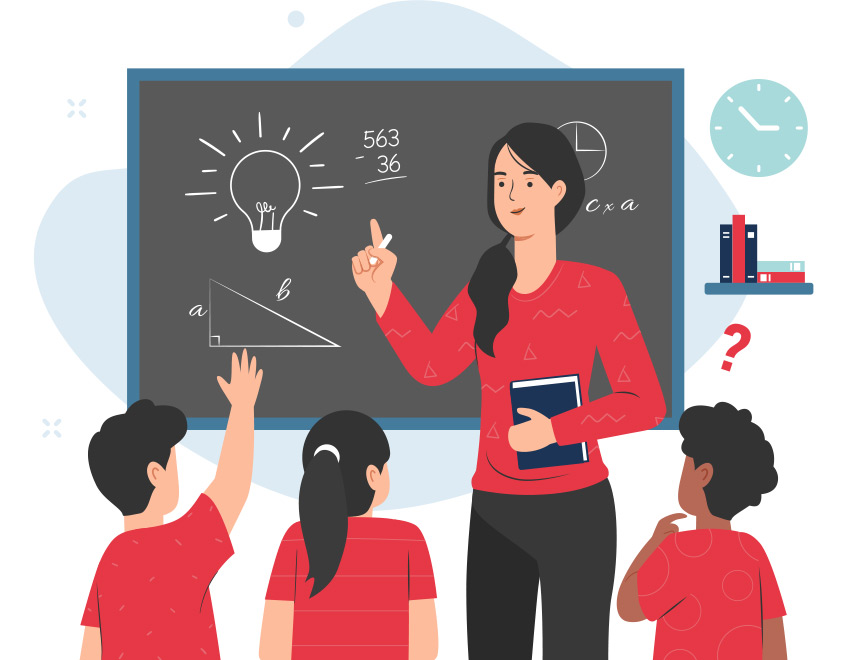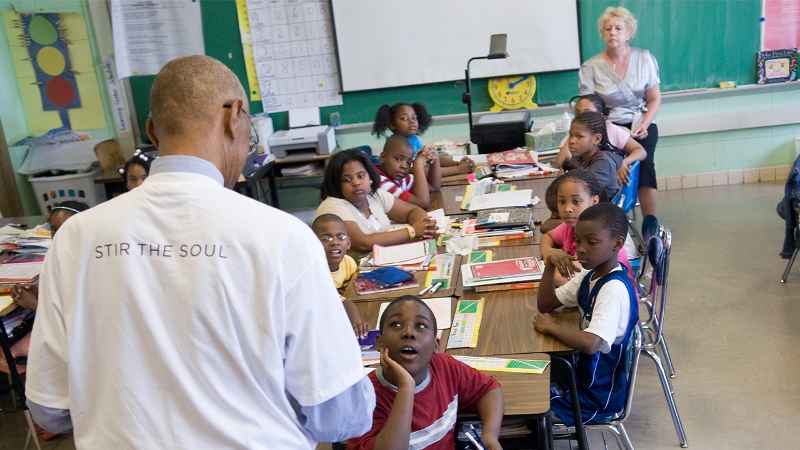Comprehensive Primary Science Tuition Singapore for Primary School Students
Comprehensive Primary Science Tuition Singapore for Primary School Students
Blog Article
Exploring the Various Mentor Techniques in Primary Science Education And Learning Today
The landscape of primary scientific research education and learning is progressing, with numerous training methods getting prestige in contemporary class. Inquiry-based understanding, hands-on experiments, and the combination of innovation are redefining just how teachers engage young minds. Furthermore, collective methods and separated instruction are being used to satisfy the varied demands of students, boosting both interaction and understanding. As we take a look at these methods, inquiries emerge concerning their efficiency and the effects for future academic techniques. What might these shifts in method mean for the next generation of learners?
Inquiry-Based Understanding
Inquiry-Based Knowing (IBL) is a pedagogical strategy that encourages students to discover scientific concepts via questioning, investigation, and hands-on trial and error. This approach emphasizes the function of pupils as energetic participants in their learning, promoting critical thinking and problem-solving abilities. By involving with real-world questions, trainees end up being curious and motivated, which improves their understanding of scientific concepts.
In IBL, educators work as facilitators, guiding trainees as they browse their queries as opposed to delivering information straight. This student-centered technique allows for differentiation, suiting different discovering styles and paces. Trainees establish abilities in formulating hypotheses, developing experiments, and evaluating information, which are vital for scientific proficiency.
Furthermore, IBL fosters cooperation amongst students, urging them to share searchings for and ideas. This cumulative questions advertises social skills and a sense of area within the class. The procedure of questions urges strength, as students discover to embrace failing as a stepping stone toward understanding.
Hands-On Experiments
Hands-on experiments are an important element of efficient science education, complementing the concepts of inquiry-based learning. These experiments allow trainees to engage directly with scientific principles, promoting a deeper understanding through experiential learning. By manipulating products and observing results, young students can grasp abstract concepts in concrete methods.
Such tasks promote essential thinking and problem-solving skills, as students hypothesize end results, conduct experiments, and assess results. This process encourages them to ask concerns, improve their understanding, and develop a scientific mindset. Hands-on experiments can be tailored to varied learning designs, guaranteeing that all pupils have the chance to engage meaningfully with the web content.
Moreover, hands-on experiments typically urge partnership amongst peers, advertising team effort and communication skills. Operating in groups makes it possible for pupils to share concepts, discuss searchings for, and find out from each other, which boosts their overall academic experience.
Including hands-on experiments into the key science curriculum not only enriches the learning environment yet likewise cultivates a long-lasting rate of interest in scientific research. By actively joining their education, trainees are more probable to develop a passion for clinical inquiry that prolongs beyond the classroom.

Modern Technology Integration
Integrating innovation into key science education has actually become significantly essential in cultivating pupil interaction and enhancing learning end results. Making use of digital tools, such as interactive simulations, virtual laboratories, and educational software application, offers students with opportunities to explore scientific concepts in cutting-edge means. These sources promote a much deeper understanding of intricate topics by permitting learners to visualize and adjust variables that would certainly be not practical in a standard classroom setting.
Furthermore, modern technology combination urges personalized discovering experiences. Pupils can proceed at their very own rate, revisiting difficult ideas through multimedia sources, which satisfy various knowing styles. This versatility not only sustains individual development yet likewise grows a feeling of freedom in learners.
Additionally, technology serves as a bridge to real-world science, linking pupils with present study and professional contributions. Access to on-line databases and scientific journals expands trainees' point of views on scientific inquiry and fosters vital believing abilities.
Collaborative Knowing
Collective understanding plays a vital function in primary scientific research education by fostering team effort and interaction skills amongst you can try here pupils. This technique urges learners to interact, share expertise, and participate in analytical, which boosts their understanding of scientific ideas. By participating in group tasks, pupils find out to articulate their concepts, pay attention to varied perspectives, and discuss solutions, all of which are important skills in both real-world and scholastic contexts.

Research study suggests that joint understanding can cause increased inspiration and involvement in scientific research topics, as pupils discover pleasure in common experiences (primary science tuition Singapore). In addition, this strategy prepares trainees for future collective undertakings, furnishing them with the abilities necessary for reliable synergy in college and expert settings. Ultimately, accepting collective learning in main science education and learning can dramatically improve the discovering experience and advertise a deeper Extra resources understanding of clinical questions
Separated Guideline

Set apart instruction can materialize in numerous ways, such as varying the web content, procedures, or items of knowing. Teachers may utilize tiered assignments that give differing degrees of complexity, permitting students to work at their corresponding readiness degrees. Additionally, flexible grouping methods can assist in collaboration amongst pupils with various capacities, fostering peer discovering.
Evaluation plays a vital function in this strategy, as it informs instruction and assists instructors recognize each trainee's unique requirements. Developmental evaluations, such as monitorings and quizzes, can assist teachers in adjusting their techniques to improve learning outcomes. primary science tuition Singapore. Inevitably, by carrying out separated guideline in main scientific research education, teachers can cultivate a much more fair and reliable learning setting, encouraging all students to reach their full capacity in understanding clinical sensations
Verdict
In summary, the diverse teaching strategies in primary science education, including inquiry-based knowing, hands-on experiments, technology combination, collaborative learning, and set apart guideline, collectively contribute to an extra reliable understanding atmosphere. These techniques advertise essential reasoning, analytical skills, and a deeper comprehension click to read of scientific principles. By applying these methods, instructors can create interesting and supportive class that resolve the diverse needs of students, eventually fostering a long-lasting rate of interest in scientific research and boosting scholastic achievement.
Inquiry-Based Knowing (IBL) is an instructional approach that urges pupils to discover clinical principles via questioning, investigation, and hands-on testing.Collaborative understanding plays a vital role in main science education by cultivating teamwork and interaction skills among trainees.Research study suggests that collaborative knowing can lead to enhanced inspiration and involvement in science topics, as students locate satisfaction in common experiences.In fostering a comprehensive discovering atmosphere, separated direction emerges as a key approach to accommodate the diverse demands and abilities of trainees in primary scientific research education and learning. Ultimately, by applying distinguished guideline in main scientific research education, instructors can grow a much more reliable and fair learning atmosphere, empowering all trainees to reach their full possibility in understanding scientific phenomena.
Report this page